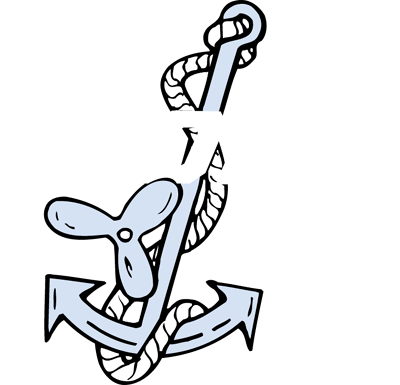Feeling Very Strongly About It Both Ways: Just What Makes A Dangerous Drug Dangerous, Anyway?
USCG v. RODNEY DARRELL CURLEE
Decision and Order Dated July 7, 2015
ALJ Bruce Tucker Smith
The mariner in this case tested positive for amphetamines in a random drug test. When called by the MRO and asked if he had any explanation for the test results, the mariner said – yes he did – he was diagnosed with ADHD and he had been taking Adderall, an amphetamine and a Schedule II controlled substance, which is a recognized treatment for ADHD. Following the script, the MRO then asked for a copy of the prescription. The mariner responded that he didn’t have one; he was taking his wife’s medications because he couldn’t afford separate physicians for both himself and his wife. The case went to the ALJ, and the mariner produced his treating psychiatrist, who confirmed before the ALJ that the mariner had a long-standing diagnosis of ADHD and that it mandated his use of Adderall. The psychiatrist went on to explain that the medication was essential for the mariner’s ability to “concentrate on his job as well as his activities of daily living”. The ALJ found the psychiatrist, and the mariner, both highly credible. The ALJ took pains to note that the mariner had freely testified against his own interests by admitting that he violated his employer’s policy by taking prescription drugs without a prescription. The ALJ also noted that his employer had written a highly favorable letter praising the mariner’s reliability and job performance, with full knowledge that he had tested positive for amphetamines. Despite all of this, the ALJ still found that the Coast Guard had proved its prima facie case of use of dangerous drugs by a preponderance of evidence, and accordingly revoked the mariner’s license. The ALJ then went on to state that the totality of the circumstances and the evidence suggests that the Respondent is a strong candidate for clemency. Respondent’s use of Adderall was, and is, medically appropriate. The ALJ urged the Commandant to consider “that Respondent’s use of Adderall is supported by medical evidence and is consistent with safety at sea.” With that conclusion, the ALJ urged to Commandant to grant the mariner’s application to waive the three year minimum requirement for requesting administrative clemency. [Administrative Clemency is provided for at 46 USC sec. 7701 (c); 46 CFR sec. 5.901 – 5.905; and U. S. Coast Guard MARINE SAFETY MANUAL CH. 5. See, Currents and Eddies, ed. 12/23/2014.]
EVALUATION: This case seems, at first blush, to be somewhat inexplicable. First, the ALJ credits the mariner and his doctor with complete and high credibility in their testimony, which seemingly established that the mariner had a medical excuse for the positive drug test. Then, the ALJ revokes the mariner’s license after finding that the Coast Guard PROVED its case of use of, or addiction to, a dangerous drug. One seeming justification for what seems an inexplicable result is found in footnote 8, where the ALJ recites the fact that the mariner failed to abide by his marine employer’s policy manual, prohibiting the use of “illegal” drugs, which it defines as including any drug “which is legally obtainable, but has not been legally obtained.” The ALJ then notes that this could have served as a basis for misconduct, “which was not pled in this case”. The real answer, however, is centered around footnote 4, and the key lies in the definition of a “dangerous drug”. Turning to the legislative history of 46 USC sec.7703 (B) (2), and 7704 (c), the ALJ states that Congress “clearly intended that otherwise legal drugs, used without a prescription, are in fact “dangerous drugs”. The ALJ also reaches this conclusion by stating in the footnote that “use” when applied to “narcotic drugs” or “controlled substances” is not intended to include off the shelf drugs or drugs acquired by prescription lawfully issued by a medical doctor, “as long as the drugs are used by the individual in the recommended amounts and the drugs will not impair the individual’s ability to perform duties.” Footnotes 5 and 6 of this decision, not repeated here, may be helpful in the defense of a mariner in parsing what exactly is meant by the terms “dangerous drug” and “controlled substance”. These 3 footnotes, 4, 5, and 6, are the best synopsis we have seen of the authorities governing these concepts. This decision is currently on appeal to the Commandant, and we look forward to seeing how, and if, the Commandant will treat this unusual set of facts with any constructive creativity. (I know – dream on!)
